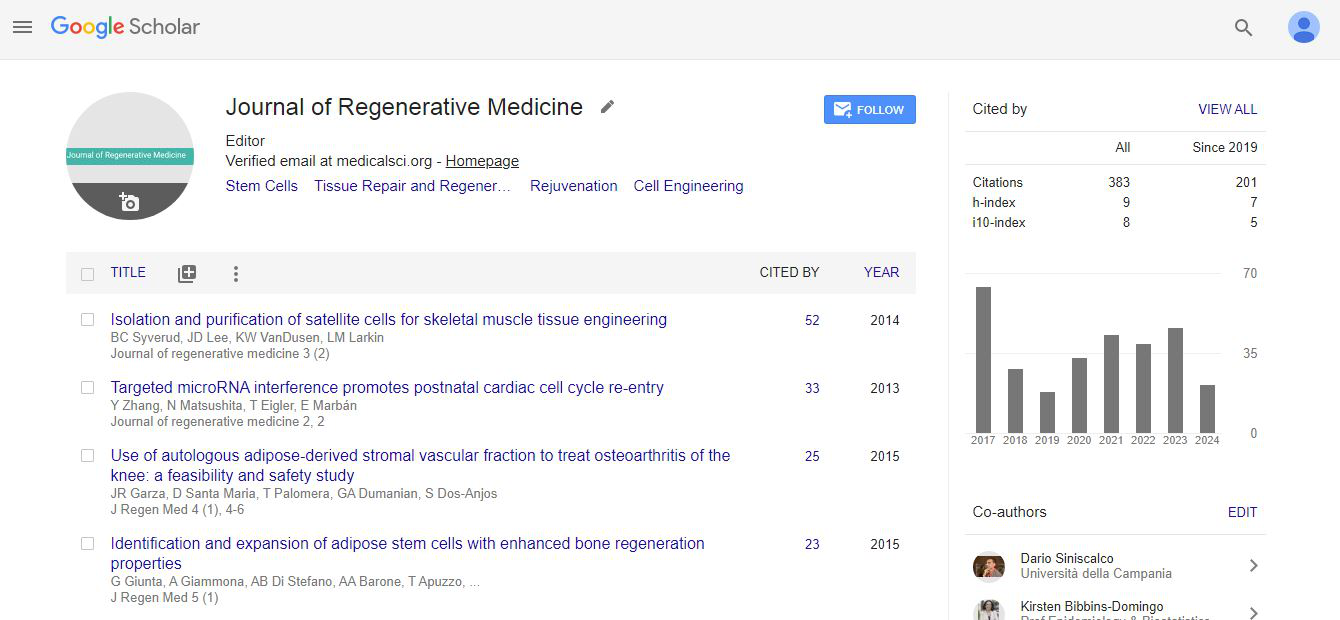Auricular acupuncture for cognitive impairment and dementia: A systematic review
Chan-Young Kwon, Boram Lee, Hyo-Weon Suh, Sun-Yong Chung and Jong Woo Kim
Kyung Hee University, Republic of Korea
: J Regen Med
Abstract
In this systematic review and meta-analysis, we investigated the efficacy and safety of auricular acupuncture (AA), which is a safe and nonpharmaceutical treatment inserting needle or attaching medicinal herb to acupoints in the outer ear, for cognitive impairment and dementia. Twelve electronic databases were searched, and 9 randomized controlled trials (RCTs), to August 2017, evaluating effects of AA on cognitive impairment and/ or dementia were included. The results are as follow. (1) For vascular dementia (VD) patients, AA showed mixed results on cognitive function and insignificant differences in self-care ability compared to Western medication (WM). However, when AA combined with WM, the clinical effectiveness was better compared to WM alone. (2) For mild cognitive impairment (MCI) patients, AA combined with WM did not showed significant improvement in cognitive function compared to WM. However, when AA combined with herbal medicine (HM), significant improvements in cognitive function and self-care ability were occurred, compared to HM alone. (3) There was no report about adverse event associated with AA. (4) The methodological quality of included RCTs was generally poor. For the efficacy of AA on cognitive impairment and/or dementia, limited evidence suggested that AA may help to enhance the clinical effectiveness of WM in VD patients and to improve cognitive function and self-care ability of MCI patients when it combined with HM. However, more rigorous and large-scale RCTs are needed to confirm the efficacy and safety of AA on these populations.
Biography
Chan-Young Kwon is a Korean Medicine Doctor (KMD) and a specialist on oriental neuropsychiatry. He received a master’s degree from Kyung Hee University in 2016, and he’s doing his doctoral studies. He has published several papers about neuropsychiatric conditions including posttraumatic stress disorder (PTSD), depression, headache, insomnia, and emotion freedom technique (EFT). And he participated in the process of developing KM clinical practice guideline on depression. Now he works at a public health center in South Korea.
E-mail: beanalogue@naver.com
 Spanish
Spanish  Chinese
Chinese  Russian
Russian  German
German  French
French  Japanese
Japanese  Portuguese
Portuguese  Hindi
Hindi 